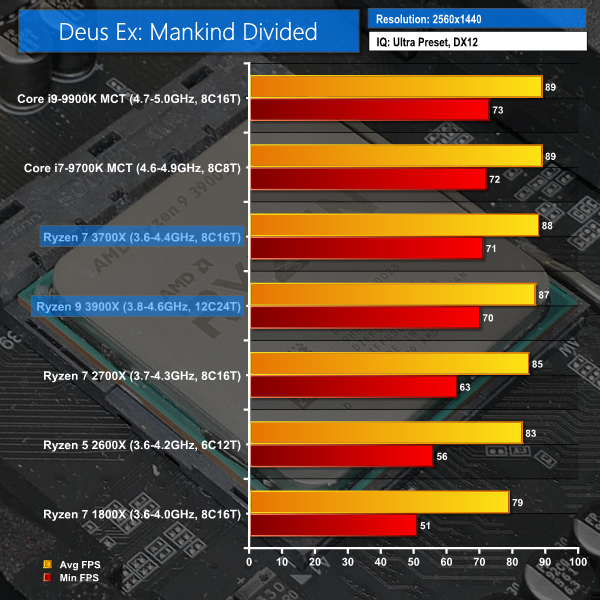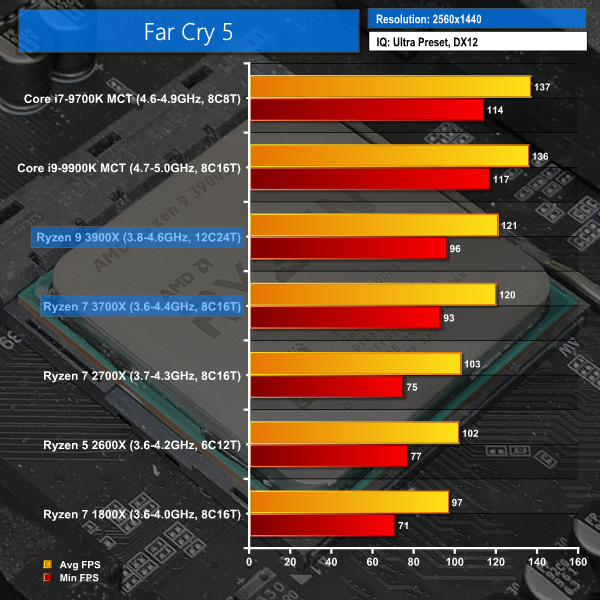The market for people buying an expensive CPU and using it for gaming at 1080p is likely to be limited. What 1080p does is give a good indication of the CPU's raw gaming performance as GPU power is sufficient to push frame rates to a level where the CPU and memory limitations can be observed.
We supplement the 1080p gaming results with a pair of games tested at 2560×1440 resolution. We chose Deus Ex: Mankind Divided and Far Cry 5 as the former is particularly GPU heavy at higher resolutions and the latter is a (relatively) computationally-heavy, open-world game.
Deus Ex: Mankind Divided
We run the built-in benchmark using a 2560×1440 resolution and the same settings as the 1080p test (Ultra preset).
Push up to 1440p in Deus Ex and the performance difference between Coffee Lake and Ryzen 3000 disappears as the GPU struggles to cope with the enhanced demand placed on its silicon.
Far Cry 5
We run the built-in benchmark using a 2560×1440 resolution and the same settings as the 1080p test (Ultra preset).
Up the resolution to 1440p and our Gigabyte RTX 2080 Ti cannot push past 140 FPS on average. So with Intel’s chips now sitting at around 135 FPS average and the AMD chips still offering just over 120 FPS, the performance deficit has been cut.
In other words, Intel’s Coffee Lake i9 and i7 are still the best options for 1440p 120/144Hz gamers but the performance drop to AMD’s Ryzen 7 3000 CPUs can be considered relatively small. The same could not be said for Zen and Zen+, so credit to AMD where credit is due.
 KitGuru KitGuru.net – Tech News | Hardware News | Hardware Reviews | IOS | Mobile | Gaming | Graphics Cards
KitGuru KitGuru.net – Tech News | Hardware News | Hardware Reviews | IOS | Mobile | Gaming | Graphics Cards




